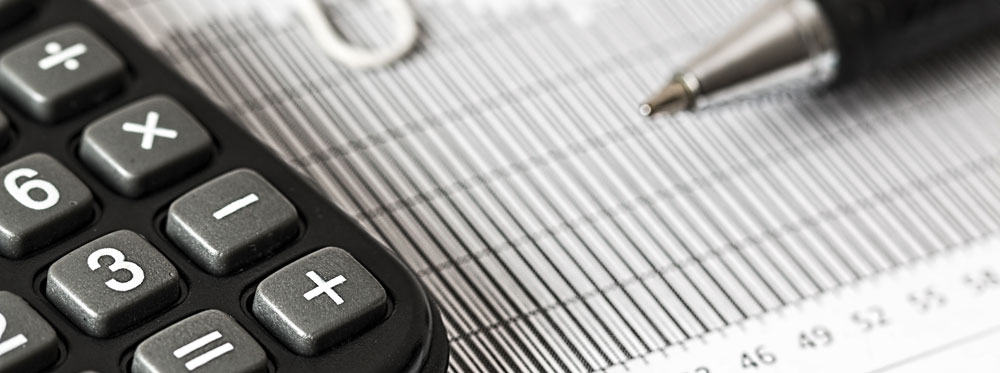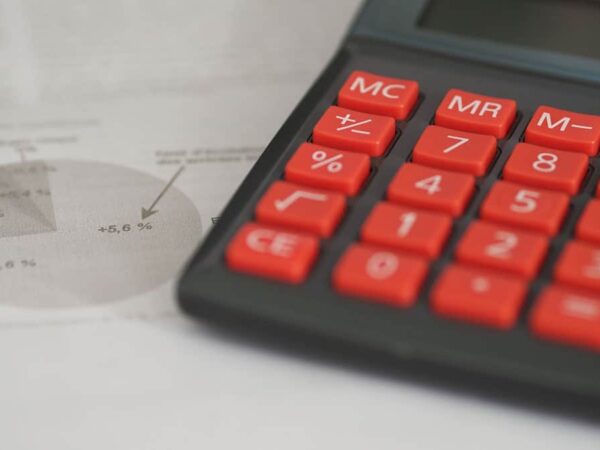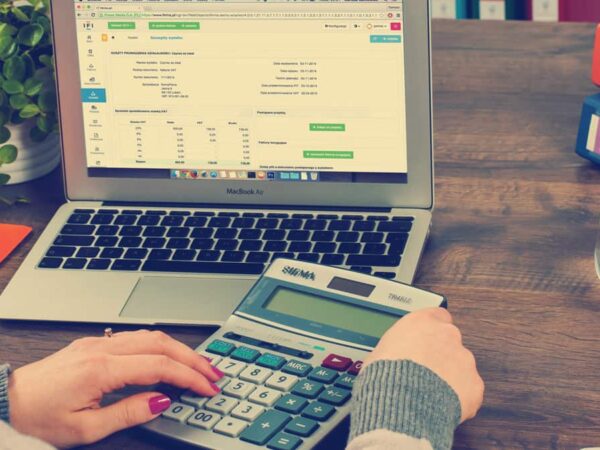Small Business Tax Deductions
Running a small business can qualify you for dozens of lucrative small business tax deductions. Let’s take a look at some common deductions.

Whether you’re a one-person shop working from home, or a team with an office space, store, or warehouse, your small business is going to have to deal with taxes. Taxes can take up a big chunk of your small business’s revenues, so you want to handle them intelligently to minimize your IRS bill. That means you’ll want to take advantage of all the small business tax deductions you can.
Your tax obligations depend on the structure of your business. If you’re incorporated, your tax deductions will come out of your business taxes. But even if you’re not incorporated (a sole proprietorship, LLC, or partnership, for example), you still get to take those deductions. They just come out of your personal taxes instead.
The tax code is complicated and there are certain tricky limitations and exceptions for business-related deductions. Make sure to check in with a tax professional to ensure that you’re following the right rules.
Let’s take a look at some common tax deductions (including some you may not expect) to keep in mind as you manage your books.
Home Office-Based Tax Deductions
One of the many perks of running your remote office or home-based business is the multiple tax deductions available to your home-based business. Common tax deductions for home-based small business include:
- Home office costs (rental and mortgage)
- Office supplies
- Furniture
- Other equipment
- Software and subscriptions
- Mileage
- Travel, meals, entertainment, and gifts
- Insurance premiums
- Retirement contributions
- Social Security contributions
- Cell phone charges
For many remote workers or home-based entrepreneurs, your home office will be your largest deduction. A home office doesn’t need to be a full room to count for a deduction—in fact, it can be just part of a room or a specific location in a part of the house. The one caveat is that the IRS requires your home office to include a space that is used exclusively for your business and has no other purpose. In other words, your couch doesn’t count.
In order to calculate how much to deduct for your home office, you need to find out what percentage of your home constitutes workspace. Measure your home office area and divide that number by the entire square footage of your entire home. The percentage is the fraction of your home-related business expense you can claim for rent/mortgage, insurance, Wi-Fi, and utilities. So if your home is 1,000 square feet and your office space takes up 100 square feet, you can deduct 10% of all of those expenses from your business taxes.
Another home office caveat is the fact that you don’t want to claim a home office if it’s not a dedicated space. Your spare bedroom which you use once a year to do inventory is not going to pass muster for a “home office deduction.” If you have any doubts, check in with a tax professional on how to qualify.
Furniture, Office Supplies, Equipment Tax Deductions
Home-based business owners can deduct not only home office costs, but you can also deduct your home office furniture, office supplies, and home office equipment.
Tax pros say that there are two ways to deduct your home office furniture. The first way is to deduct the entire cost of the purchase the year you purchase it. The second way is to deduct a portion of the cost of the furniture purchase over a number of years, depending on the type of item. This is known as deducting the depreciation.
In addition to your home office and furniture deductions, you can also deduct the cost of business supplies you buy to run your business. Laptops, mobile phones (for business), scanners, and other technology are all tax-deductible. The same principle applies to deducting business expenses; you can either deduct the entire cost up-front at 100% or deduct the depreciation over a specific number of years.
General Small Business Tax Deductions
Whether you’re working out of your home or not, you can deduct many general business expenses, including:
Business Software and Subscriptions
Business software and subscriptions are a small business tax break. Computer software for your small business can be dedicated at a rate of 100% the year you buy it.
Business-related magazines, periodicals, trade journals, and both hard-copy and online subscriptions are 100% deductible as well.
Mileage, Gas, and Tolls
Driving your car for business means that you’re entitled to a tax break on your mileage, gas, tolls, and even auto repairs. In order to total your business mileage, you need to record the date of travel, total mileage, tolls, parking costs, and the purpose of your trip. You can record your mileage and other relevant information by using a notebook or with a dedicated app for the purpose.
There are two choices to deduct business travel mileage, gas, and other costs:
- Deduct Mileage: The first way you can deduct driving costs is by deducting mileage. Total the mileage and add in tolls and parking. For tax purposes, you will multiply your total mileage by 54.5 cents per mile. Measure your personal driving records and deduct that amount, including gas, repairs, and insurance in the total.
Your mileage meter starts the minute you leave your home for business travel (home office) or when you arrive at your business destination and end at your last (non-home office).
- Deduct Car Costs: The second way to deduct the costs of your driving is by deducting car costs. If you own your car, value your loan interest and the car depreciation. If you’re leasing your car, including your lease payments in the calculations.
Note that the regular commute to and from your office is not deductible. These deductions apply only for travel related to the work itself, such as trips to a work site or deliveries.
Business Travel
The entire cost of staying over in a hotel for business travel trip is tax-deductible. If you have to rent a car or use hotel dry cleaning, your costs for being on travel can be deducted too. Your mode of business travel transport, be it plane, train, or auto, is also fully tax-deductible.
Business Meals
The costs of transport and lodging for business travel are 100% tax-deductible, but what about meals? A portion of your business travel meals (50%) do qualify for a tax break. Business meals during the workday at home don’t qualify for a tax deduction, however. The exception to this rule is if you are paying for a meal for the purposes of business or with a client, then you deduct 50% of the cost of the meal.
Business Entertainment and Gifts
Client dinners are deductible at a rate of 50% but what about other forms of client entertainment, such as sports tickets or theater tickets? These are no longer deductible according to 2018 changes in tax laws.
Health Insurance Premiums & Long-Term Care
Health insurance for the self-employed can be pricey. The good news is that cost for paying your health-insurance premiums or long-term care insurance for the self-employed is 100% tax-deductible. Some caveats apply to coverage for spouses and children, depending on your spouses’ employment status and insurance coverage.
IRA Retirement Contributions and Social Security
Saving for retirement can be tough when you’re self-employed. The good news is that any contributions made to your IRA or Keogh account are 100% tax-deductible and 50% of your total Social Security contributions are also deductible on your 1040 tax form.
Cell Phone
Any business-related cell phone or landline calls are tax-deductible. Some small business owners have a dedicated work cell phone for this purpose. If you have a cell phone or landline which is exclusively used for business, then the costs of maintaining that separate phone line are tax-deductible. If you have just one phone for both business and personal use, check with a tax professional about whether any of the cost is deductible.
Office Space
If you’re running an office, store, or warehouse, the expenses associated with keeping that space are deductible. That means rent, utilities, upkeep, and any other costs associated with that space. If you’ve purchased a space, the calculations are a little bit different—you’ll have to calculate the capital expense and depreciation (which is a good time to call an accountant).
Smart Small Business Tax Management = Big Savings
Running a small business can qualify you for dozens of lucrative tax breaks. Since small business tax deductions can be complex, if you have any questions, check with your trusted accountant or legal professionals for clarification about the applicable laws and regulations. And whatever you do, make sure to keep detailed records of all of your expenses so you can back up your deductions in case of an audit.
Learn More
When it comes to your finances, you want clear guidance and easy-to-implement tools based on your unique needs. Visit Learn with AOF to get started strengthening your financial management and meeting your goals.
Experience a different kind of financial education. Learn with AOF has flexible, on-demand courses developed by small business owners, for small business owners. Learn on your schedule, with no time commitment or limit. Save your progress any time to fit courses into your busy schedule.
Learn more about Accion Opportunity Fund (AOF) and how we advise small businesses and give them the support and tools to grow.



